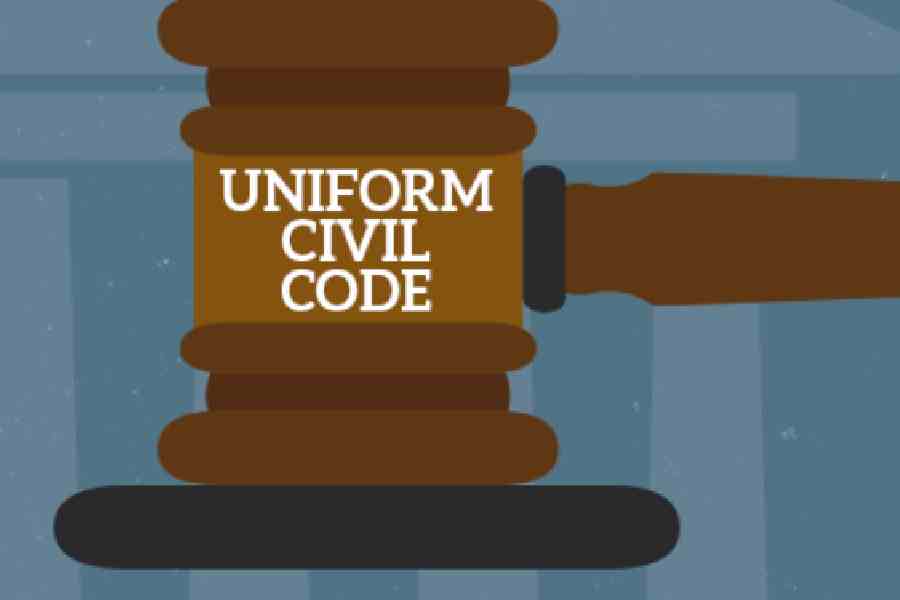The Law Commission on Wednesday initiated a fresh consultation process on uniform civil code by seeking views from stakeholders, including public and recognised religious organisations, on the politically sensitive issue.
Earlier, the 21st Law Commission, whose term ended in August 2018, had examined the issue and solicited the views of all stakeholders on two occasions. Subsequently, a consultation paper on "Reforms of Family Law" was issued in 2018.
"Since more than three years have lapsed from the date of issuance of the said consultation paper, bearing in mind the relevance and importance of the subject and also the various court orders on the subject, the 22nd Law Commission of India considered it expedient to deliberate afresh over the subject," the panel said in a 'public notice'.
The 22nd Law Commission, which recently got a three-year extension, has accordingly begun examining issues related to UCC on a reference sent by the Ministry of Law and Justice in June 2016.
"Accordingly, the 22nd Law Commission of India decided again to solicit views and ideas of the public at large and recognised religious organisations about the Uniform Civil Code," the statement said.
Those who are interested and willing can present their views within a period of 30 days from the date of notice to the Law Commission.
If need be, Commission may call upon any individual or organisation for a personal hearing or discussion, it said.
In its consultation paper issued on August 31, 2018, the 21st Law Commission headed by Justice B S Chauhan (retd) had said that while the diversity of Indian culture can and should be celebrated, specific groups or weaker sections of the society must not be "dis-privileged" in the process.
It said the Commission dealt with laws that are discriminatory rather than providing a uniform civil code "which is neither necessary nor desirable at this stage".
The consultation paper said most countries are now moving towards recognition of difference, and the mere existence of difference does not imply discrimination but is indicative of a robust democracy.
In short, a uniform civil code means having a common law for all citizens of the country that is not based on religion. Personal laws and laws related to inheritance, adoption and succession are likely o be covered by a common code.
Implementation of a uniform civil code has been part of the BJP's election manifestos.
States such as Uttarakhand are in the process of framing their common code. The BJP had promised a uniform civil code in Karnataka ahead of the recent assembly elections.
The then law minister Kiren Rijiju had told Rajya Sabha in a written reply in December 2022 that states were empowered to enact personal laws that decide issues such as succession, marriage and divorce, in their endeavour to secure a uniform civil code.
Article 44 of the Constitution, part of the Directive Principle of State Policy, provides that the State shall endeavour to secure for the citizens a uniform civil code throughout the territory of India.
Except for the headline, this story has not been edited by The Telegraph Online staff and has been published from a syndicated feed.










